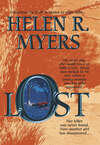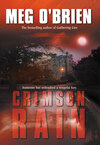Читать книгу: «While Others Sleep», страница 3
5
7:30 a.m.
The Saunders lived in an upscale development, a spare mile northwest of Maple Trails. New roads framed by concrete curbing as white as fresh-squeezed toothpaste stretched around groves of dogwood, live oak and a relatively new planting of native pine. Safe ground for Campbell, since this area was also outside of LPD jurisdiction and private security systems were the fashion.
Locating the correct address, she parked in front of the two-story Tudor, badly designed in gray brick. As she approached the leaded glass and oak front door, she took special note of the teal-colored Ford compact with the battered front end tucked in the upper corner of the driveway. It reminded her of Maida’s concerns about her granddaughter’s poor driving record to date. Right now, though, all she cared about was that the senior Saunderes’s vehicles were still in the two-car garage.
A considerable amount of noise from inside the house reassured her. She rang the front doorbell, waited a good half a minute and rang again.
Suddenly she saw blurred movement beyond the thick glass, then the door swung open and Dwayne Saunders scowled at her. He was dressed in the uniform of an executive—starched white shirt, red tie, soft-leather gray loafers and belted gray slacks that did little to conceal a slight paunch momentarily sucked in. Campbell allowed that he cleaned up well. She was less impressed with his puffy face and unhealthy coloring.
“Yes?” he demanded.
Amazons weren’t his type; she could see it by the stiffness entering his features as he registered her uniform and that they stood eye to eye. In turn she schooled her expression into what she hoped was something less icy than her usual countenance of late. Maybe he remembered her from Maida’s last birthday party—or maybe not, since he’d behaved like a petulant teenager dragged to a family event against his will. She had not forgotten that sullen mouth and close-set eyes.
“Sorry to intrude, Mr. Saunders, but I’m—”
“Yes, yes. I remember.”
“Good. I need to ask you about your mother.”
“What? Why? Is she sick?”
“I hope not, sir. We’re being thorough, nonetheless. Are you aware that she left the estate late last night in a rush and hasn’t returned?”
“My mother? She never drives after dark. She has night blindness.”
Jerk, she thought. He clearly had forgotten about the cataracts. “I witnessed it myself, sir. And although it was quite stormy—”
He shook his head and began shifting, ready to close the door. “It didn’t get bad until late, what…midnight? She would have been asleep for hours. You must be mistaken.”
Campbell softened her tone. “There’s nothing wrong with my vision, Mr. Saunders. Have you been in touch with your mother?”
Before he could answer, a svelte blonde dressed in chilled-peach satin appeared at his side followed by a waft of Organza perfume. “What’s going on, Dwayne? You promised you’d take Debra and Marc to school so I can make my hair appointment. They have to leave. Now.”
“I said I’d do it, Patsy.”
Campbell pretended not to notice the rising notch of tension in his voice. “Hello again, Mrs. Saunders. I’m Campbell Cody with Cody Security. I’m sorry for the inconvenience, but we’re concerned about Maida.”
Despite the early hour, the woman looked fresh and fashionable even in a house robe. In contrast, Campbell was never more aware of her appearance—stained and torn uniform and frizzing hair. Whatever mascara and lip gloss she’d put on last night had been bitten off or washed away hours ago. Add to that, she was almost half a foot taller than the woman. No amount of slouching would improve that contrast, so she stood tall and let Maida’s son and daughter-in-law think what they would.
“What’s she done now?” Blue-eyed Patsy sighed.
Campbell was aware of Dwayne momentarily shutting his eyes.
“I swear, that woman should sell that house once and for all before we all go as loopy as she is.”
“She’s missing, Patsy.”
Bristling at the subtle rebuke from her husband, Patsy directed new disdain at Campbell. “Excuse me? How can she be missing in her own house with security all around her? You mean you’ve lost her.”
“She’s not ours to lose.” Campbell had met her type too often to be annoyed. “She is a free citizen, fully cognizant and deserving the respect due to anyone her age. That said, she left the estate under unusual circumstances last night and hasn’t returned. We’re hoping you might know something about the matter.”
“Unbelievable,” Patsy drawled. “In the same breath you insist she’s of sound mind and then have the gall to admit—”
A sudden crash in the kitchen followed by a pained cry had both husband and wife racing into the interior of the house. Since they didn’t slam the door in her face, Campbell followed.
In the middle of the kitchen, amid shattered glass and splattered orange juice, Debra Saunders, Maida’s seventeen-year-old granddaughter, stood staring at the TV. On the screen was Wanda White of KLTV, the Longview-Tyler station, sharing the overnight tragedy regarding the teenage girl found mortally wounded behind a local restaurant.
“EMTs worked valiantly to save the teenager, but Stacie Holms was pronounced dead shortly after arriving at Good Shepherd Medical Center.”
“Stace.” The word was both an anguished whisper and a protest. Then with a wrenching sob, Debra Saunders covered her face with her hands. “Oh, my God. Oh, no…”
Campbell felt for the teen. She couldn’t forget that she herself had crossed paths with the victim last night at Good Shepherd. A girl who, as luck would have it, had driven the same car Maida did. Was there information here that needed to be reported to the investigating team?
“You’re a good friend of Stacie Holms, Debra?” Campbell asked.
Patsy Saunders spun around. “What do you think you’re doing? You need to leave, Ms.—Officer. This is a family moment.”
“Mrs. Saunders, I’ll make this as brief as possible, but I’d like to ask Debra—”
“Get out!” An adamant Patsy pointed with fierce determination to the door.
Knowing she was way out on thin ice jurisdiction-wise, Campbell held up her hands and obeyed, with a veneer of calm that vanished once she was back in the car.
“Dammit!” She struck the steering wheel with the palm of her hand.
She’d had no business trying to quiz the kid. Not only was she overreaching her authority, she was jeopardizing any form of cooperation with the adults. At this point she doubted Dwayne or Patsy would ever talk to her unless it was to press charges for neglect.
6
8:03 a.m.
“Why didn’t you call?”
Back at the offices, Campbell took her father’s annoyance as the minimum penance due. “I thought what I had to report was better said in person.”
Ushering her in, Yancy shut the door to his office, leaving Beth Greer, his efficient though curious young receptionist-dispatcher to wonder. Normally, he had an open-door policy, unless he was interviewing a prospective client, or was on a conference call, or was lying down when it didn’t pay to fib about his weakened state. This didn’t look like one of those.
“So?”
Campbell eyed the TV remote in his hand. “Have you heard anything more from Maple Trails while I was gone?”
“There’s additional damage to the houses down from the marina. Never mind that, what did the Saunders say? Was the daughter there by chance?”
As he spoke, Yancy aimed the remote at the unit behind his desk. When Campbell saw the screen go blue and read Video, she understood. He’d seen the news, too.
“Debra, yes. She was watching TV in the kitchen. She took the news hard.”
“Figures. There may be about twenty-five hundred students at the high school this year, but I reckon, by the time they’re seniors, the kids all have a good idea who everyone else is in the class.”
Campbell wondered if his instincts had meandered down the same path as hers. “I tried to find out how well Debra knew the Holms girl after questioning her parents about Maida, but Patsy turned alpha female. Sorry. It would have been helpful for us to have something to offer the authorities if we need to ask them to bump up a search for Maida.”
Yancy signaled his agreement of that with a slight shift of his thick eyebrows. “What did her loving son have to say about his mother’s whereabouts?”
“He doesn’t have a clue. That is, he says he hasn’t a clue. The commotion with Debra prevented me from probing his memory a little further.”
“So, for the moment, Maida has been forgotten? Maybe conveniently?”
The VCR tape momentarily captured her attention. Campbell knew what was coming. Even so, she experienced a pang at the sight of the crime scene, the white Grand Am behind the news anchor. “That’s it. That’s the 911 I heard on the scanner last night. Look at the car—see what I mean? That’s why I let you and Ike talk me into going to the hospital. When I heard that the victim was being rushed to Emergency, I wanted to check on her myself. Don’t ask me why I didn’t listen for a better ID to make sure it was Maida.”
“It’s definitely one of those freak situations. Sorry as I am for the kid, I can’t help feeling this is buying us time.”
Campbell understood. This brought them back to Dwayne. But before she could say anything, the intercom buzzed.
Yancy stopped the VCR and hit the TV’s mute button before reaching across his desk. “Yes, Beth?” he said into the machine.
“State police on line one, sir.”
Yancy grabbed the receiver. “Dolan—good of you to get back to me so fast.”
Exhausted in too many ways to count, Campbell was slow to figure out who Yancy was talking to. Wondering what he was up to, she watched his narrow-eyed stare as he looked beyond the miniblinds out to the street. As a state trooper, Yancy had cut a distinguished figure in his uniform, intimidating enough for most of her friends to give their old home a wide berth—a reaction he encouraged, since there were a number of pranksters in her circle.
“Okay, thanks. I’d appreciate that, Dolan. We’ll get it faxed to you as soon as I get the additional information confirmed.”
The moment he hung up, Campbell was already leaning across the desk. “You called Captain Wheat?”
“Didn’t think it could do us any harm. He always said he owed me for finding his boy’s Harley before that chop shop spread the parts across the country. He checked on overnight activity in our area. Says so far there are no reports of anyone matching Maida’s description, and no one’s called in to check on anything bearing her car’s plates. I guess you could call that good news.”
To a point. They could be reasonably sure she hadn’t had an accident or been stopped for reckless driving or speeding. But that left plenty of other possibilities.
“At least we can delay talking to Tyndell.”
Campbell couldn’t believe Yancy was suggesting that. “How do you figure? Patsy may stay preoccupied with their daughter’s emotional state, but I’d be surprised if Dwayne hasn’t already gone back to wondering about my visit. I’ll bet there’s already a call from him on Maida’s answering machine, and another on the main office’s switchboard.”
“He’ll wait, thinking she might be in the shower, and try again.”
“Listen to me. He may not be the son Maida hoped for, but he knows what she expects from her chief beneficiary. I’m the one who’s going to shower and change. Then I’m going back to the Trails and track down Bryce. I’d rather suffer his company than watch him in a TV press conference with Dwayne.”
“Well, while you’re burning all cylinders, start making a list of Maida’s friends and the places you know she frequented when she did leave Maple Trails. If it turns out that we do have to make this an all-out search, that will save us some time.”
“Good point. By the way, I’ll get cleaned up here so you don’t have to nag me about doing more driving.”
“I’m overwhelmed.”
Less than an hour later Campbell found Yancy sitting on the edge of Beth’s desk. Between his guilty look and her big calf eyes, Campbell suspected she’d been their prime topic of conversation.
“You have a big mouth,” she said, certain Yancy was the guiltier of the two.
“I was only telling Beth a little about Maida. Remember the time she was baby-sitting for her grand-son—oh, heck, it was three years ago—and she intentionally ran over that rattlesnake?”
Campbell didn’t believe his story for a second—she knew he’d told Beth about her latest lightning experience—but the snake story was an amusing one. Maida’s aim was way off and she’d only broken off the snake’s rattles. Her grandson had been so upset that Maida asked one of the security guards to take the creature to the vet to see if they could reattach them.
Shaking her head, Campbell headed toward the door.
“Hey—if you’re going back to Maple Trails, why aren’t you in uniform?” Yancy called after her.
She simply lifted a hand in farewell, not yet ready to explain.
7
Northwest of town
8:03 a.m.
Certain the ceiling would rot and collapse on him before he would sleep, Blade kicked free of the tangled sheet and blanket, and swung his legs to the floor. The room spun before him in a dusky blur thanks to the combination of fatigue and the bourbon he’d downed to block out what he’d seen last night. Beyond the closed drapes the birds outside sounded as if they were in serious competition for screen time in a Hitchock remake.
Food. Slowly, it registered that they must be impatient for their day’s ration of seeds, especially since the storm had returned winter to Texas. On the heels of that realization came a taste of February chill against his bare skin and he glanced around, wondering what new damage the storm had caused on the roof or a window. Nothing would surprise him, since he’d made no improvements and only the most mandatory repairs to this three-room shack since taking on the lease almost a year ago.
Blade had decided on this remote eyesore for a reason other than economics; it also ensured protection and relief from all but the most determined solicitors. The place was a far cry from his roots, but then that was what set black sheep apart from others. He owned few creature comforts—a king-size bed obtained at a furniture closeout sale, and a thirteen-inch TV found in a closet that he’d pounded and shaken until it gave him enough picture to check on the news and the weather. His existence made Thoreau appear like the Hugh Hefner of his day.
Before he turned into something from the Ice Age, Blade directed his weary self into the pea-green bathroom in search of a revitalizing hot shower.
Minutes later, in the fifties-style white-and-black-tiled kitchen, he put on water for coffee. Dressed in worn jeans and a black sweatshirt, he dragged on boots, preparing to feed his raucous wake-up service. But as he approached the door, he locked gazes with the four-legged squatter who’d arrived between Thanksgiving and Christmas. Blade suspected people who expected Santa to bring them a cute, cuddly puppy had dumped the beast in the country.
The brindled behemoth was neither cute nor cuddly, and when it growled, it sounded like gargling. Glaring at him out of one topaz eye, it peered through the window of the kitchen door, then launched itself into the air, leaping onto the picnic table, causing the dilapidated remains of rotting redwood to groan as it teetered.
Issuing his own throaty response, Blade back-tracked and hoisted the fifty-pound sack of dog food from the pantry. “Shit,” he muttered at its depleted weight. It was only Wednesday and it was already half empty. He’d bought the stuff over the weekend.
As he emerged from the house, the dog greeted him by throwing back his basketball-size head and making another of those drowning growls. Then he shook his head, shooting mucus from his flapping jowls like skeet at a firing range.
Blade tried to duck behind the bag. “You ugly piece of—knock it off!”
Once the assault was over, he slammed the bag on the patio and folded back the top until the crunchy pellets were exposed. “There. The Four Seasons Special of the Day. Knock yourself out.”
Circling to the back of the house, Blade opened the vinyl garbage can and picked up the other fifty-pound sack—almost as depleted—of birdseed and filled the two feeders at opposite sides of the unfenced yard. Returning to the kitchen, he gave the mutt a wide berth, but even with its head thrust inside the sack, the dog growled.
Once back in the kitchen, Blade removed the .9 mm stuck in the back of his jeans and set it on the counter. He hoped not to need the weapon out here—the animal seemed to be repaying his kindness by acting as a self-proclaimed security guard—but he wasn’t big on trust. It was misplaced trust and bad judgment that had landed him here in the first place.
His coffee ready, he turned on the TV and sipped the scalding liquid while waiting for the static and snow to clear. As he eyed the date on the calendar, Blade realized yesterday had been a childhood friend’s birthday.
“—We now join Troy Boreman at Longview High,” the no-nonsense news anchor began. “Troy, what’s the latest there? Have any of the students come forward to add new information on Stacie Holms?”
The reporter in the windbreaker shrunk deeper into his thin jacket. “Carmen, as you can imagine, students and staff remain in shock. These kids went home yesterday focused on their basketball team’s division play-off chances, and possible spring break excursions for the seniors. This morning those same seniors have been hit with the tragic reality that one of their own will not be graduating with them in May.
“From those I’ve spoken to so far,” the reporter continued, “eighteen-year-old Stacie Holms was a quiet girl who, while not part of the sports or academic scene, had a close circle of friends. We’re hoping to speak with them later.”
“Troy, are the police on the premises to ensure the students’ safety, since we don’t know why this terrible thing happened?”
“As you can see behind me, Carmen, police presence is strong—here for crowd control as much as for safety concerns. But as you know, the school already has a full-time member of the LPD based here, as does each of the middle schools—part of the department’s proactive methods of law enforcement.”
Nodding, Carmen murmured, “Good report, Troy. Keep in touch.”
Blade switched off the TV and leaned back against the counter to finish his coffee, and to think. Ordinarily, he didn’t pay much attention to the juvie stuff. Tough as this episode was, it didn’t compare to the number of lives snuffed out daily where he came from due to poverty, drugs, gang activity and plain old domestic violence. Kids here tended to die from sports accidents or from reckless or drunken driving. And yet he had been aware of Stacie Holms and her group for a while now; in fact, he’d seen them earlier last evening.
The teens were memorable, what the good old boys called “show ponies”—miles of hair and makeup as expertly applied as any runway model’s, their nubile bodies shown off to distraction by skin-tight jeans and T-shirts. The middle-class Four Musketeers were regulars at Point East, a pizza-and-pool joint off Highway 80 frequented by an older crowd. The girls’ bravado and serious approach to the game of pool made them seem older, allowing the manager to give them an occasional break. They were good for business, inducing male customers to linger, which meant the booze flowed and the cash register sang.
Blade had been increasingly aware of them as the group’s apparent leader, Ashley, started spending more time flirting with a piece of bad news on his list. Luckily, bartender-manager, Truitt Hurley chased the kids out by 11:00 p.m.—earlier if he caught them trying to steal or sneak the harder stuff. Last night they stayed on the restaurant side and left immediately after dinner. Blade figured they’d heard about the bad weather due in from Dallas and decided to play it smart and dash for home. Now he wondered.
By the time he rinsed the mug and reclaimed the sack of dog food from the homesteading mongrel, Blade knew what he needed to do. It was time to see what people at HQ were saying. Daylight, however, was no friend.
Lieutenant Scott McBrill, the District C night patrol watch commander, and his boss, would be long gone by now. Day Command was handled by District A on the north side of town. Blade didn’t have much use for their lieutenant, aka Mr. Hollywood, but he doubted Ted Glass knew he existed. On the other hand, at 2:00 p.m. command transferred to District B in the heart of the city. That shift continued until 10:00 p.m. and was under Lieutenant Gene Poteet, who did know him and who saw Blade as a way to climb over McBrill promotion-wise. Blade would detour entire neighborhoods to stay out of Poteet’s reach.
Everything in the LPD was portioned into threes. The three districts were also divided into three patrol beats: 10, 20, 30 for A, 40, 50, 60 for B, and 70, 80 and 90 for C. The theory was that neighborhoods should get to know the officers watching over them and vice versa. It was an inspiring and ambitious attempt to reestablish the nostalgia of the foot cop of days gone by. Blade supposed it was working in the outer neighborhoods fairly well, where some officers actually lived around the people they protected. But undercutting that were the major highways running through the south and east sides, bringing traffic that inevitably chiseled away at the community’s stability.
Minutes later, he backed a dusty, two-tone brown pickup out from behind the detached garage. The rusting eighties-model Ford was his camouflage, so common in the rural south that it passed virtually unnoticed on the streets. Exactly what Blade wanted when he had to leave his hideout without the cover of darkness.
Fifteen minutes later, he pulled into the rear of District C station. Taking no chances, he passed empty spots near the doors and parked behind a couple of transport vans, opting for exercise and caution over convenience.
Like his truck, his clothes offered a chameleon’s protection. Gone was the look-at-me leather jacket, the macho gold necklace and scuffed Tony Lamas. For this trip he wore his oldest jeans with the ragged hems, a plaid flannel shirt that had never seen an iron and that was left open over a ripped undershirt. Add the cheap athletic shoes, and he could pass for any poor yokel trying to figure out where the city had towed his wreck, or hoping a stolen trailer had, indeed, been found. With the excess gel showered away, his overgrown black hair fell low over his brow, another way to alter the shape of his face and avoid eye contact. Blade tried not to expose his eyes, aware their near aqua color were his most distinguishable feature; however, there were times when wearing shades drew more attention, and visiting a police station was one of them.
“Hey.”
His gaze first locked on black leather loafers. Glancing up, he saw a pair of tan Dockers, a navy sports jacket with a matching tie over a blue shirt. He met the wary scrutiny of Detective Alan Lefevre. Fair-skinned and blond-haired, the cop always appeared slightly sickly under fluorescent lights. While no friend, Blade had helped him solve a few cases—a significant one only last month.
“Slow morning?” he replied. “You’re usually out hustling by now.”
“One of my cases is going to trial today,” Lefevre replied.
“That explains the conservative attire.” Usually a flashy dresser, today Lefevre could pass for a discount department store manager.
“The defendant is Sonny Lykstra, the asshole who raped and murdered his ex-girlfriend’s daughter. I’m not taking any chances on this case. You got something for me?”
“When was I designated your personal bloodhound?”
“You said you had a lead on Longo.”
Ferrell Longo was another rotten apple in a depressingly bottomless barrel. “His name has come up a few times. If the roach crosses my path, I’ll step on him for you. I’m here to talk to Snow.”
“He’s out in the field.”
Probably interviewing the Holms family, Blade guessed. Since the hallway remained empty, he lingered. “What’s the consensus about the kid found shot last night?”
“They’re looking for a boyfriend, though they haven’t discounted an attempted carjacking. Depends what all comes up on the computer from the fingerprints lifted off the vehicle.”
The rain would have hurt there, but forensics should have something from the interior already. Either Lefevre didn’t know what or didn’t care, not being the case detective.
“Stacie Holms had a record.”
Although annoyed by the cop’s smug expression, Blade encouraged him with a lift of his eyebrows.
“Let me think what they said in this morning’s meeting…two misdemeanors and a felony. Shoplifting and vandalizing private property.”
As bad as the shoplifting was, it didn’t interest Blade. The vandalizing was another matter. He would bet anything it was the most recent charge; the question was, had it been a prank that got out of hand, or an escalation of violent tendencies? “How long ago?” he asked.
“I forget. Before Labor Day last year. My head is swimming with dates thanks to those goddamn lawyers. Snow did say the felony involved messing up some guy’s boat.” He snickered and his face grew flushed. “Little bitches must have downed a case of beer beforehand to do that kind of damage, if you catch my drift.”
Blade figured he might eat something after leaving here, so he chose not to ask for details. Still, stupid stunts were a far cry from murder.
A patrolman who used to work the night shift passed and shot him a condescending look. Blade decided it was time to move to a less-visible location. “Thanks for the update. If I can’t see Snow, I’ve gotta find a lonesome computer.”
As he began to pass, Lefevre asked, “Are you sure you don’t have anything for me?”
“Let me use your machine for five minutes and I might remember something.”
Lefevre swore. “You’d charge your own mother for toilet paper.” But he gestured for Blade to enter his office.
By the time he closed the door, Blade was sitting behind the detective’s desk and typing in Lefevre’s password.
“Feel free to help yourself,” the detective muttered.
“Just thought I’d save us both time.”
“I’m gonna change my password and then you’ll show more respect.”
“I doubt it.”
Lefevre pushed at a cuticle with his thumbnail. “Don’t be too sure. Even you may find yourself needing backup one day.”
“Not likely. Just tell the EMTs to bring an extra body bag.”
The cop’s taunting eyes lost their competitive gleam. “Doesn’t anything hit a nerve, Blade?”
“Not anymore. Relax, Lefevre. That also means I don’t have any plans to challenge you for lieutenant.”
“Like you’d stand a chance.”
Lefevre seemed buoyed by the reassurance, but already bored with the conversation, Blade was glad when the newest homicide file came up on the screen. “Stacie Rayann Holms. Born—an Aquarius. Figures.”
“You believe in that crap?”
“Uh-uh.”
“Then why did you—” The detective swore again. “You complain about wasting time. I don’t know why I bother with you.”
“Because having an extra pair of eyes and ears on the street pays off. Or have you convinced yourself that you found that murdering swine Pollard on your own?”
“Okay, okay. Why don’t you find me the Brown brothers instead of sticking your nose in this,” Lefevre said, nodding to the computer. “I suspect Snow will bring in her murderer before you hit the streets tonight.”
Blade barely heard him; he was absorbing new data on the deceased. “This could be interesting…there’s a father but no mother.”
“So? Maybe she’s dead.”
Possibly. Knowing for sure would shed some light on the situation. For instance, her car wasn’t something a father would buy a daughter when he was constantly being called down to the police station to pick her up. Had he been generous because she’d achieved good grades and had straightened up her act—at least at school—or was it to cover his own neglect? Or some abuse? The kid had managed to amass five speeding tickets since receiving the car, three of them remained unpaid. Blade didn’t like the vibes that came along with this information.
He also learned a .380 casing had been removed from the car. The initial consensus was that Stacie had exhibited little resistance to her attacker, but the autopsy report would confirm or refute that. At the moment, though, it did suggest she had known her killer, which would encourage Snow to grill her family, as well as her closest circle of friends. Or, could be that she’d picked up someone else after she dropped off the other girls.
“Come on, Blade, give me a break,” Lefevre said, checking his watch. “I’m due in court at one-thirty and I have to stop at the hospital for one of my own investigations, not to mention grab something to eat.”
Deciding he had the few facts available at the moment, Blade exited the file and the program and thought about what lay ahead. The other three of the Four Musketeers’ DNA had to be all over the car, making evidence analysis tedious for Forensics. And for Snow also, since it was logical to assume if Stacie had a record, they did, too. What a media field day this would turn into—kids who reject and rebel against society.
Preoccupied, he followed Lefevre out of the building. They were at the second set of glass exit doors when the detective suddenly swore, punched them open, and raced across the parking lot. As he slammed his hand on the Cody Security SUV, Blade ducked his head and quickly veered right until he was hidden behind a van.
Начислим
+18
Покупайте книги и получайте бонусы в Литрес, Читай-городе и Буквоеде.
Участвовать в бонусной программе



























